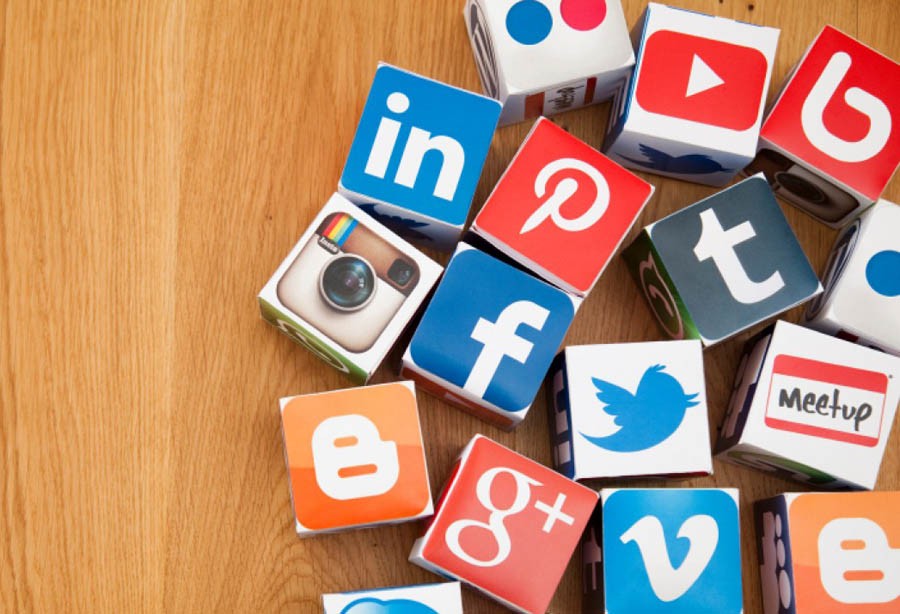
The ‘harmful’ impact of social media is not because of it but in spite of it

It is too easy to dwell on the negatives and paint social media as a bogeyman: The problem perhaps is with what we expect of social media -- it seems that one is still mesmerised by social media’s ability to evoke collective tears and laughter -- after all it is not in itself a living, breathing thing but one that only comes alive at the touch of one’s fingers.
The problem arises when we take ourselves out of the equation by downplaying our own significance and treat social media as an all-powerful omnipotent entity. In both cases, whether it is the traditional way or the social media way, it is humans yearning to establish contact with others, to be heard and valued for their opinions.
This is not to say that social media posts and tweets don’t have a bearing on the way things shape up in the real world. There are political movements like the Arab Spring or at home, the PTI’s rise that were aided by social media; by virtue of being a catalyst, however, social media in itself cannot be regarded as an active participant in a strict sense -- it can only fan a fire if there is one.
Much like the traditional media, social media also holds up a mirror to society. Most of what we see and call out in our everyday conversations centred on the ‘harmful’ impact of social media is not because of social media but in spite of it. Social media’s only conceivable fault may be that it has put us face-to-face with grotesque realities that we as humans choose to overlook in most cases. Unfortunately, vanity, prejudice, lust, hypocrisy, extremism, violence, exhibitionism and apathy -- the so-called dark side of human nature has existed for long without social media.
How often has one laughed inappropriately at a funeral? How many times has one chosen to be an apathetic bystander to an act of injustice? Has one always heeded the call of the conscience: putting others’ needs over one’s own, stopping to help every blind person cross the road, standing up to the status quo?
Read also: Where pain and pleasure coalesce
In real life, one can enjoy the luxury of not having what is often generously labelled a ‘faux pas’ broadcasted for an audience. If no one saw it, it didn’t happen. But on social media what we say and choose not to say carries an equal amount of weight.
Figuratively speaking, all of our actions -- from nods, grimaces, shrugs and smiles to thoughts, statements and conversations with others are recorded not just for one to reflect on his own but for the perusal of those that we befriend on social media. When we find ourselves disappointed, angered or inspired by what we see on these forums, it is because we are forced to acknowledge the basic human failings or strengths veiled in those posts and tweets.
Twitter, Facebook, Instagram and other forms of social media allow one the liberty to manage one’s public persona. One finds one’s self scrambling to engineer a good public image on social media by saying and sharing all the right things -- being politically correct or sensitive to cultural traditions. With greater accessibility of information, there is little room for lack of awareness. But, exactly how different is this from daily human interactions minus social media or the ones that happened before the advent of social media?
It is safe to say that, except for a very small minority of mavericks and eccentrics, much of everyday conversation has always been about putting on a good show and making ourselves appear more likable. So, in such a situation the ‘Hajj for Allah but the selfies for His people’ is in fact just the right amount of absurd enough to fit in.
Read also: Living with social media
The fact that social media is reshaping the landscape by blurring the lines between the public and the private makes it difficult to determine how one should act in a given situation: how much of one’s self can one reveal on social media and how much can land one right in the middle of a virtual duel.
There have been instances when social media conversations have been presented in court as evidence. In our part of the world, there have been fatwas and accusations of blasphemy based on people’s social media activities. The state has been obsessing over how to manage social media with a draconian cybercrime bill and working overtime for surveillance.
This is not to dismiss the impact that social media has had on our lives by connecting us and providing a platform to voice our opinions and share our thoughts but to merely point out that social media is just a channel -- however powerful it may be for interaction. There are certain characteristics it has that demand we deal with it in a slightly different manner -- emoticons, shares, likes, retweets and hash-tags, but it attempts to mimic interactions in the real world to the best of its abilities, which is a compliment.